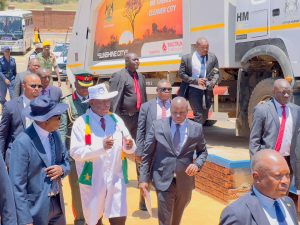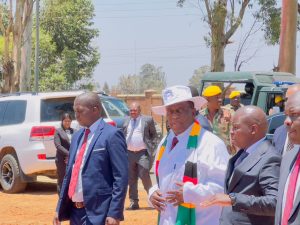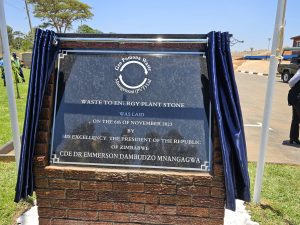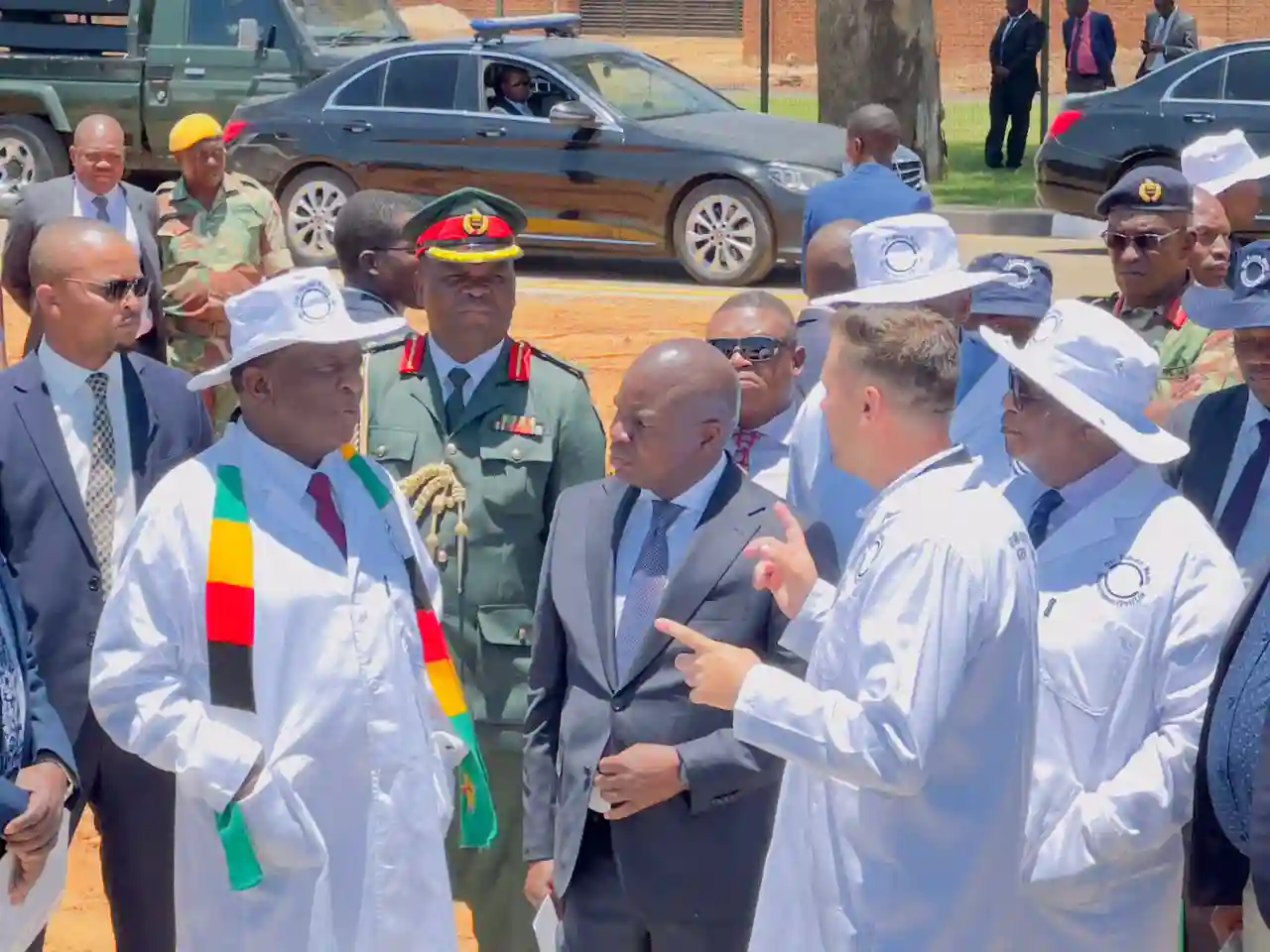President Emmerson Mnangagwa this Monday participated in a ground-breaking ceremony for a waste-to-energy project in Pomona, which has been awarded to Geogenix BV, represented by Dilesh Nguwaya. The ceremony was attended by various esteemed individuals, including the Mayor of Harare, Ian Makone. The project, valued at US$320 million, aims to convert waste into energy at the Pomona landfill site in Harare.
During his address at the Geo-Pomona Waste-to-Energy groundbreaking ceremony, President Mnangagwa made the following key points:
1. The project shows the government’s commitment to improving communities and creating clean environments.
2. It marks the beginning of restoring Harare as a clean and friendly city.
3. The government welcomes private sector involvement in boosting the economy and providing high-quality services.
4. The project will build a waste-to-energy plant that generates 22 megawatts of electricity, contributing to the national energy supply.
5. It will create employment and empowerment opportunities for women and youth.

6. Waste-to-energy conversion helps reduce greenhouse gas emissions and tackles climate change.
7. Proper waste collection practices and environmental control systems are important.
8. President Mnangagwa emphasizes the need for unity and collaboration to develop modern infrastructure in cities and towns.

9. The National Clean-up and Beautification Programme is encouraged to maintain cleanliness.
10. Access to a clean environment is a basic human right and crucial for sustainable socio-economic development.
11. The project is expected to serve as a model for waste-to-energy initiatives in the future.
 12. The President officially commences the Geo-Pomona Waste-to-Energy Project.
12. The President officially commences the Geo-Pomona Waste-to-Energy Project.
13. He offers his blessings for the success of the project and for Zimbabwe.
Some Context:
The Pomona waste management project has been facing legal challenges as the City of Harare disputes the contract imposed on it by the central government through the Ministry of Local Government.
According to the controversial deal, the local authority was obligated to pay a minimum of US$22,000 per day to the Netherlands-based company Geogenix BV for waste disposal at the site. Over the course of the 30-year contract, the City of Harare was expected to pay over US$344 million to Geogenix BV.

If the local authority chose to cancel the deal, it would have to pay Geogenix BV US$3.5 million for breaching the contract. However, former Mayor Jacob Mafume stated that the Ministry of Finance and Economic Development is now covering the bill. He expressed that the City of Harare is no longer concerned about the Pomona waste management deal, as the government has taken over the financial responsibility.

In May 2022, it was revealed that the Harare City Council dumpsite in Pomona would be handed over to Geogenix BV to establish Geo Pomona Waste Management Private Limited, which would build a waste-to-energy plant.
The concession agreement states that Geogenix BV is responsible for carrying out specified works, financing, procuring, installing, and maintaining equipment, as well as transferring the site and facilities to the City of Harare or any designated third party at the end or termination of the agreement. However, it appears that the City of Harare will be doing most of the work, while Geogenix BV receives the majority of the funds. The project company established for this purpose is called Geo Pomona Waste Management (Pvt) Ltd.
On April 28, 2022, the City of Harare handed over the site to Geo Pomona Waste Management (Pvt) Ltd after signing a joint statement on April 27, 2022. From then until May 12, 2022, the City of Harare and Geo Pomona Waste Management (Pvt) Ltd agreed to jointly operate the Pomona dumpsite, after which Geo Pomona Waste Management (Pvt) Ltd would take full control for the next 30 years.
This model will be rolled out across the country.

